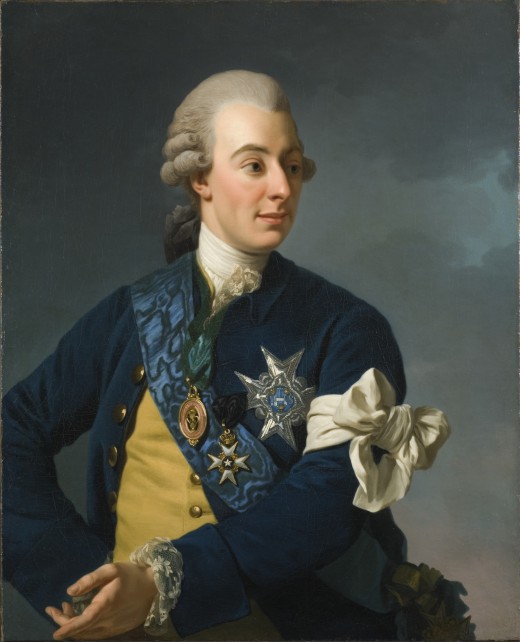- HubPages»
- Food and Cooking»
- Beverages»
- Coffee
Coffee - Friend or Foe

Where did coffee come from
The oldest record about coffee most likely comes from a book written by the Arab physician Rhazem in the tenth century. He credited Ethiopia as a birthplace of a bush with red berries that when boiled produced a uniquely stimulating drink. At first powerful rulers and religious leaders persecuted and punished “Arabian wine” consumers but by early fifteenth century coffee was a favorite drink in the East.
By late 1500s coffee came to Europe with the Venetian merchants, and by late 1800s coffee became more popular than tea in America. Since then many studies on the effects of caffeine conducted throughout the world have been making occasional news either claiming how harmful coffee is to be replaced the next day with approval or even downright endorsement. So is coffee harmful or not? Is it good for you? Probably the first attempt to find out about the effects of coffee on humans was conducted about 300 years ago.

The Swedish Experiment
The monarch of Sweden Gustav III was convinced that coffee was a deadly poison. He ordered to carry out the following experiment with two prisoners, twin brothers as the legend goes: one was to drink a few cups of coffee a day, the other - the same amount of tea. The experiment took 10 years. In the meantime, overseeing physicians died followed by the king himself who was shot, and only the two "guinea pigs" lived long lives.
The tea drinker died at a respectable age of 83, and we don't know anything about the coffee drinker who outlived the tea drinker anyway. The experiment since then known as the Swedish experiment had been repeated but the control and the experiment group numbers obviously increased in size.
The Research - Gout, Liver Cirrhosis and Heart
So far researchers seem to agree that generally coffee protects from cardiovascular disease particularly if you have a special gene that codes for the enzyme which helps to break down caffeine fast. Men and women who consume more than 2 cups of coffee but less than 6 cups a day tend to have lower rates of cardiovascular problems.
Those who don't drink coffee or drink more than 6 cups tend to be more at risk from suffering from cardiovascular problems. Caffeine has a short term effect on blood pressure which increases a chance of suffering a heart attack but there are other beneficial substances in the coffee itself that in the long term helps protect from heart disease. Scientists are still not sure what exactly in coffee produces beneficial effects. In addition to protecting heart, drinking coffee may shield the liver from the ravages of alcohol, a study of more than 125,000 people suggests. The risk of developing alcoholic cirrhosis of the liver dropped with each cup of coffee drank per day. Among those who had their blood drawn, liver enzyme levels were higher in individuals who drank more alcohol, indicating liver disease or damage.
However, those who drank both alcohol and coffee had lower levels than those who drank alcohol but did not drink coffee. Drinking coffee may also lower risk of developing type 2 diabetes, according to a preliminary study. After analysing over 17,000 Dutch men and women, researchers found that those who drank seven or more cups of coffee a day were half as likely to develop the disease than those who drank two cups or less. Coffee contains components such as chlorogenic acid, magnesium and potassium, which could improve insulin sensitivity. Since the study is preliminary it does not seem very wise to increase coffee consumption to 7 cup since long term effects of caffeine are not known. Coffee might also protect from gout characterized by the presence of increased levels of uric acid in the blood.
Men who drink four or more cups of coffee each day appear less likely to develop gout, the most prevalent type of inflammatory arthritis in men, according to new research. The study involving over 45,000 men suggests that drinking large amounts of coffee can cut the risk of this illness by about half. The exact mechanism by which coffee might guard against gout remains unclear. Researchers do not believe that caffeine has a protective effect: decaffeinated coffee was linked to a reduced risk of gout, while regular tea had no impact on risk. Instead, they suspect that another component of coffee, such as a strong antioxidant called chlorogenic acid, might somehow lower levels of uric acid in the blood. Scientists say that people who have a family history of gout or pre-diabetes should continue drinking coffee if they like the taste. Further in the future, a medication derived from some component in coffee might help protect people prone to this form of arthritis.

Decaf can trigger high cholesterol
Other studies show that decaffeinated coffee might not be as effective and beneficial as regular coffee. Decaffeinated coffee may have a harmful effect on the heart by increasing the levels of a specific cholesterol in the blood, researchers say. Their explanation is that caffeine-free coffee is often made from a type of bean with a higher fat content. When the researchers analysed the coffees used in the study, they found that the caffeinated and decaffeinated coffees were made from a different bean. The decaffeination process extracts the compounds that give coffee flavour, so it is often made from a stronger flavoured bean, called Robusta which contains a much higher fat content that stimulates fatty acid production in the body.
Caffeinated coffees are usually made from a bean called Arabica. If you have high cholesterol, it's better to stick to regular coffee not the decaf version. Coffee can raise or reduce your chances of suffering a heart attack - it all depends on your genes, researchers suggest. In 2006, a team of Canadian researchers discovered that people with a mutation in a gene responsible for metabolizing coffee had higher rates of heart attack than people without the mutation. People with a genetic makeup that causes them to metabolise caffeine more slowly have a 36% greater risk of heart attack if they drink two to three cups of coffee a day than people with the same gene who drink one cup or less a day, according to a new study.
And if they drink more than four cups, this risk rises to 64%. People who were homozygous for CYP1A2*1A - meaning they carried two copies of gene for fast caffeine-metabolism - actually reduced their risk of heart attack by drinking coffee. Among these volunteers, two to three cups of coffee caused a 22% decrease in heart attack risk. Drinking more than four cups of coffee only nominally reduced their chances of a heart attack. This is the first time that scientists have done a systematic analysis of how genes can influence the effect of coffee on heart attack risk.
The study is part of a larger trend in which scientists have untangled how genes make some diets and habits more beneficial or addictive for some people than for others. Coffee also stimulates central nervous system, so the dose contained in 2 cups of coffee have been noticed to improve psychomotor skills, mood, sense of wellbeing and increases insomnia but without feeling fatigued. Coffee connoisseurs claim that coffee is good for you but only the right kind of coffee. They claim toxins in cheap coffee (Starbucks included) can be downright harmful.
“They will steal your mental edge and actually make you weak, but clean coffee actually fights cancer and provides antioxidants,” says the founder of Bulletproofexec Dave Asprey. He writes that mold contained in coffee beans causes cardiomyopathy, cancer, brain damage, and hypertension amongst other things. Mycotoxins which is fungus grows on coffee beans left in storage for many months makes coffee taste bitter and robs it of vital antioxidants and good fats that end up ruining the benefits of this powerful drink.
Asprey writes that 52% to 91.7% of green coffee beans are contaminated with mycotoxins, and 50% of brewed coffee beans are moldy. Decaffeinated coffee is actually worse because caffeine partly protects coffee beans from mold, and the aflatoxins and ochratoxins in mold are not completely destroyed by roasting the beans. This happens because coffee is not processed soon after harvest and gets mold when it is left to sit which is how most large scale manufacturers produce their coffee beans. Roasted coffee beans have a higher antioxidant content. Moderate doses of caffeine improve mental performance.







